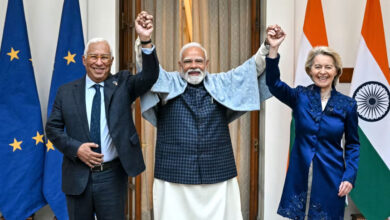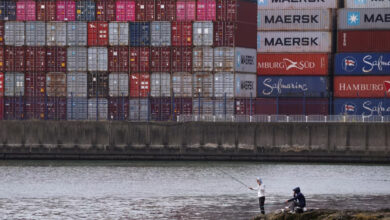Some rotten potatoes are spoiling Egypt’s trade relationship with Europe.
By 2010, agricultural trade between Egypt and the European Union (EU) will be almost fully liberalized, but recent events have raised concerns about Egypt’s ability to meet Europe’s strict sanitary guidelines.
The Ministry of Agriculture recently banned the organic food company Sekem and its subsidiaries from exporting potatoes for three years because five lots, or 125 tons, were found infected with brown rot, a bacterial infection. The EU stopped all shipments of fresh Egyptian potatoes in July after intercepting a total six infected lots, the maximum allowed under regulations in effect since 2004.
Sekem did not respond to calls from Al-Masry Al-Youm English Edition for comment.
According to the European Commission’s trade counselor in Cairo, Egyptian officials dispute the ban on exports, saying the EU has changed its procedures for inspections. One lot, or 25 tons, typically comes from a single farm, referred to as a basin. In the past, EU customs counted interceptions based on the number of basins, not the number of lots. For example, if three lots from a single basin were found infected, it would count as one interception. Now the EU counts that as three interceptions.
"There was this dispute about the counting," said Christophe Besse, the commision’s trade counselor. "But we didn’t violate anything. We just applied the regulation now. And the regulation has been clear for many years."
The issue of brown rot dates back to 1996, when several European states banned imports of Egyptian potatoes and required them to come from designated "pest-free" areas. In 2003, Egypt implemented a self-imposed ban on exporting potatoes after a series of interceptions. The commission assessed that stricter inspections were needed in Egypt and added that six interceptions would be the maximum allowed per season.
"It is our right," Besse said. "The regulation is here for five years now. The Egyptians cannot really claim they have a point because we were lenient in the past."
Following the ban, Prime Minister Ahmed Nazif announced that a committee headed by Minister of Agriculture Amin Abaza and Minister of Trade and Industry Rachid Mohamed Rachid would investigate any possible violations by the EU of the Association Agreement of 2004, which began the process of trade liberalization. Representatives from both the Trade and Agriculture Ministries declined to meet with Al-Masry Al-Youm English Edition.
Besse said the ban on fresh potato exports will have very little impact on trade volume, which stands at 250,000 tons per year. The commission voted in late October to lift the ban in January, which is when the potato export season begins, lasting three to six months. The ban, which ran from July to January, was outside the period when Egypt exports potatoes to the EU.
Since the potato ban will have little economic impact, the fallout is mostly political. Besse said the Europeans were surprised the Egyptian government made such a fuss about the ban. He acknowledged the argument, however, that just as trade is opening up in 2010, it is being limited because of stricter hygienic standards. Agricultural food entering the EU must be free of pests and pathogens.
An agreement to further open up trade was signed in Brussels by both Egypt and the EU on 28 October. It only needs the approval of parliament to go into effect. Egypt will have duty free access for about 90 per cent of agricultural exports. Most products must only differ with the European growing season.
The Europeans are sending a clear message that they are ready to increase trade, but Egypt has to meet their standards.
Medhat al-Meligui, an adviser to Minister Abaza, questions the origin of the brown rot. Each year Egypt imports about 70,000 tons of European potato seeds that produce between 350,000 to 490,000 tons of potatoes. According to a brochure by the Ministry of Agriculture, seeds can transmit brown rot bacteria.
The Egyptian government has not found any infected seeds from Europe, but Meligui said, "If the Europeans diminish imports then we’ll find the seeds somewhere else."
"If that’s the game they want to play, let them play it," Besse said. "Personally I fail to understand. There must some strong economic interest behind it. The Egyptian potato producers must lobby very hard to Minister Abaza."
Despite the political row, when potato exports resume in January, there should be no problem. The infected potatoes from Sekem were an exception; the company’s organic farms used infected potato skins as fertilizer. In the previous two years Egypt had only one interception. And although many farms around the country have been found to be irrigated with sewage water, the EU only accepts Egyptian agricultural products from pest-free designated areas. The obvious implication is that the products that don’t pass inspection remain in the country. Still, the question lingers if Egypt can pass European standards.
"If they fear something, they fear they do not have the capacity, they do not have the capability to make sure that their exports are free from the brown rot," Besse said.




